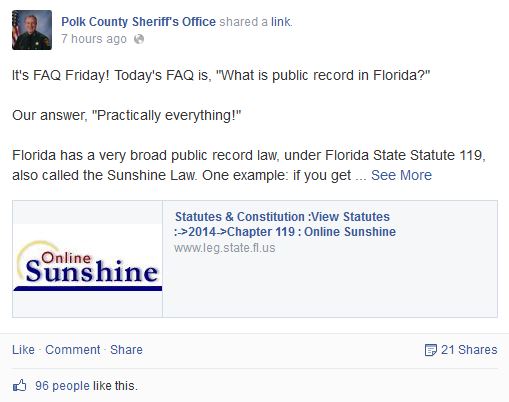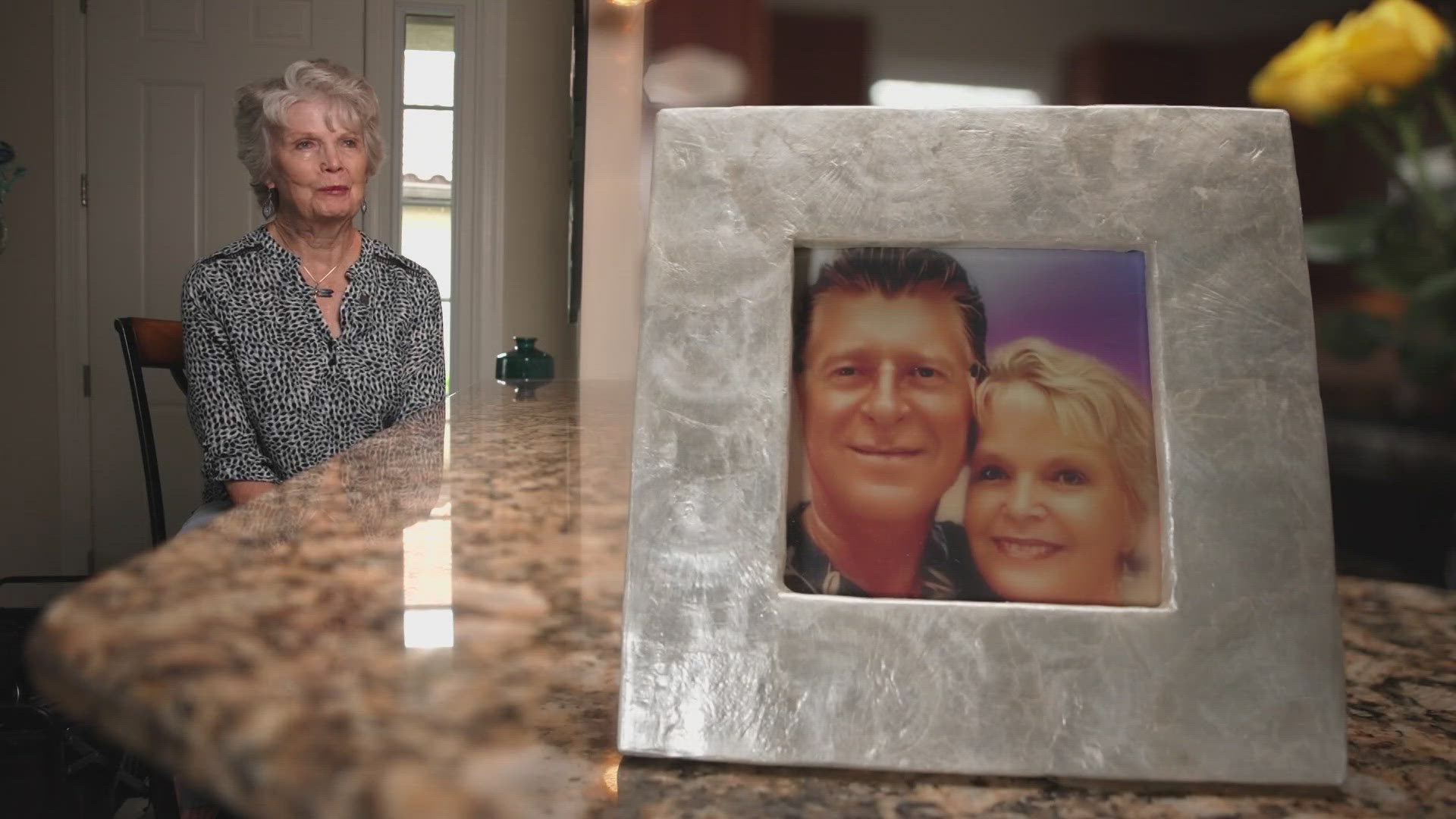This is the second of a two-part series examining how law enforcement is blurring the lines on due process.
POLK COUNTY, Florida – Law enforcement agencies have widespread support for combating sexual predators and crimes against children. But, police chiefs and sheriffs across Florida remain split on how far an agency should go to round up potential offenders.
Nowhere in Florida is the appetite greater to charge men with sexual crimes than it is in Polk County.
However, 10 Investigates found Polk County Sheriff Grady Judd has created – and promoted – a culture that prioritizes press conferences and public humiliation over due process and constitutional rights.
Asked at a Tuesday press conference why he was still accusing men of being "sexual predators" and touting their mugshots, even after they had been cleared of wrongdoing, Judd blamed a weak legal system and maintained they were "sexual perverts."
Judd called the press conference to tout a total of 132 arrests in undercover "To Catch a Predator"-style stings since March. Some of the men were believed to be involved in child porn or other crimes. However, the overwhelming majority had no previous history of any sexual offenses.
In fact, a 10 Investigates analysis of more than 1,200 men arrested in Florida predator stings since 2008 reveals 97% had no history of previous sexual offenses, leading critics to suggest the stings create more crime than they actually solve.
And while sheriffs often highlight the mugshots of particularly egregious offenders, 10 Investigates has learned most men arrested are in their teens or 20s. Many of them were only online to look for women their own age when officers baited them, then switched their age and tried to convince the men to break the law. More and more cases are being thrown out by judges for entrapment.
Yet even the men who are cleared of wrongdoing can never escape the stigma of having their name and mugshot paraded out in front of local media. Courts may expunge records, but not Google searches.
That particular fact, seemingly at odds with the concept of "innocent until proven guilty," is one that Judd takes particular pride in. He has made light of the fact that Florida's public record laws ensure men can never escape a sexual offense arrest, even if they are cleared of wrongdoing.
Although Judd and other law enforcement leaders say the press conferences are designed to act as deterrents, there was little drop in arrest numbers for years. Judd has said it's because there are more sex offenders in Florida than law enforcement will ever be able to round up.
But when 10 Investigates started asking questions about how the stings operate and how far officers were going to arrest men, the totals dropped off noticeably, from several dozen arrests per sting to a median of just 13 arrests per sting in the last five months.
Many of the men are also offered much-reduced plea deals with little or no jail time, as the courts determine they are unlikely to commit crimes on real children.
The prosecution troubles and lack of real victims are some of the reasons many law enforcement agencies - including the entire South Florida Internet Crimes Against Children Task Force (ICAC) - has largely quit the "To Catch a Predator"-style stings.
Yet in West/Central Florida, Judd's culture has spread like a wildfire. Participating agencies include the sheriff's offices in Pinellas, Manatee, Citrus, and Sarasota counties, as well as the police departments in Orlando, North Port, and Clearwater.
The stings and press conferences held in Pinellas County pose an especially interesting contraction, as Sheriff Bob Gualtieri used to remove mugshots from his agency's website if a person was found not guilty. Now, he doesn't post any mugshots to protect defendants who may have "made a bad decision."
But several times in the last year, Gualtieri has held press conferences where the names and mugshots of defendants were circulated to the media. And even though some have yet to be charged, while others have seen their charges dropped, their mugshots remain on the websites of local media outlets.
10 Investigates has also been fighting for public records on how the stings operate, but neither Judd nor Gualtieri have been forthcoming.
Law enforcement has failed to provide public records to 10 Investigates on the following issues:
- The language in the ads detectives post.
- How detectives responded when innocent men showed no interest in speaking to teens.
- If detectives are doing the stings because there is a problem of teens looking for adults online.
- How many men get baited before detectives find someone to investigate.
Ironically, the Polk County Sheriff's Office posted on its Facebook page Friday that Florida's public record laws include "Practically everything!" It added, "if we don't release public records, we can be charged with a crime."
10 Investigates will continue to press for transparency to make sure law enforcement officials are following the laws they're entrusted to enforce.
Contact 10 Investigates reporter Noah Pransky via Facebook or through his updates on Twitter.


